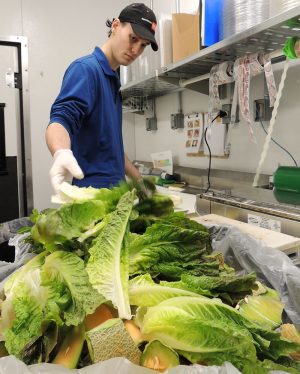
Nora Goldstein
We are about to go live with the agenda for BIOCYCLE CONNECT WEST 2020, March 30-April 2, 2020 at the DoubleTree by Hilton in Sacramento, California. The Conference theme is Building Best-In-Class Organics Recycling Programs. California is a hot bed of program development as a result of state laws mandating organics out of the landfill. AB 1826, which requires commercial generators of food waste and yard trimmings to recycle those materials, went into effect in January 2016, starting with the largest generators and then gradually ratcheting down. The regulations to implement SB 1383, the Short-Lived Climate Pollutants law that includes organic waste streams, are expected to be officially finalized by early spring, following approval by California’s Office of Administrative Law.
 Again and again, when talking with a wide variety of organics recycling stakeholders — primarily in California — the subject of contamination in food waste streams comes up. In some cases, it has to do with the volumes of compost that are anticipated from increased diversion of food waste, and how contamination complicates the ability to tap rangeland and agricultural markets that seek compost for soil productivity and carbon sequestration benefits. It also is anticipated that contamination will complicate compliance with compost procurement requirements in SB 1383 for local jurisdictions.
Again and again, when talking with a wide variety of organics recycling stakeholders — primarily in California — the subject of contamination in food waste streams comes up. In some cases, it has to do with the volumes of compost that are anticipated from increased diversion of food waste, and how contamination complicates the ability to tap rangeland and agricultural markets that seek compost for soil productivity and carbon sequestration benefits. It also is anticipated that contamination will complicate compliance with compost procurement requirements in SB 1383 for local jurisdictions.
These conversations — which take place around the country, not just the West Coast — beg the question: Does food waste equal contamination? There is a distinct air of inevitability that introducing food waste automatically introduces plastic bags, packaging, compostable product lookalikes, etc. This inevitability has resulted in a few food only collection programs, and in the state of Oregon, composting facilities that accept only food.
BioCycle CONNECT and BIOCYCLE CONNECT WEST 2020 are committed to peeling back the proverbial onion on food waste contamination. It is not inevitable that Food Waste = Contamination. From collection to composting, many have, and continue, to figure it out.
It is inevitable, however, that this challenge will be solved — if for no other reason than the world needs contaminant-free compost and digestate to help tackle the impacts of climate change and build resilient food systems.









